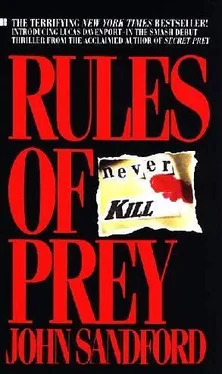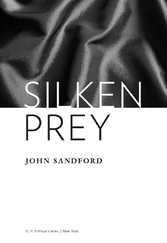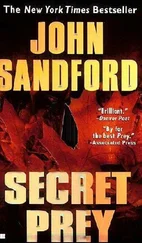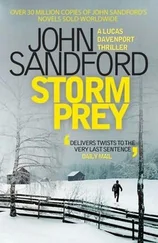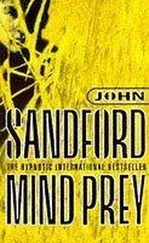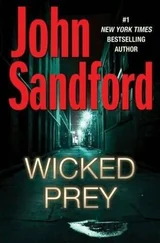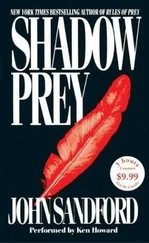The maddog sat at his desk, the office door closed, a blank yellow pad in front of him. Think.
The news stories of the surveillance on McGowan's house mentioned that the cops set up observation posts both in front and in back. Would they have done the same at his place? Probably. There were empty apartments on the block; he'd seen the signs, but not paid much attention. Nor did he know his neighbors, other than to nod at the others in his fourplex. Could he spot the other surveillance posts?
The maddog stood and stepped over to the window, hands in his jacket pockets, staring sightlessly out at the street.
Maybe. Maybe he could spot them, maybe he could deduce where they were. Where would that get him? If they came for him, he would not resist. That would be pointless. And had he not imagined himself in court, defending himself against his accusers? Had he not dreamed of capturing the jury with his eloquence?
He had. But now the vision of a magnificent defense did not come so easily. Deep in his heart, he knew they were right. He was not a good attorney; not in court, anyway. He'd never taken the fact out and looked at it, but the fact was there, like a stone.
He paced two steps one way, two steps back, tugging at his lip. They were watching. No matter how long he suppressed the urge to take another woman, they would eventually come. They wouldn't wait forever.
He sat down, looked at the yellow pad, and summarized:
They were not sure enough to arrest him yet.
They could not wait forever.
What would they do?
He thought of Davenport, the gamer. What would the gamer do?
A gamer would frame him.
***
It took him a half-minute on his knees in the garage to find the radio transmitter on the car. It took another hour to find the photographs under the mattress. The beeper he left in place. The photos he stared at, frightened. If the police should come through the door at this instant, he would go to jail for eighteen years, a life sentence in Minnesota.
He took the photographs into the kitchen and, one by one, burned them, the pictures curling and charring in the flames from the stove burner. When they were gone, reduced to charcoal, he crushed the blackened remains to powder and washed them down the kitchen sink.
That night he forced himself to lie in bed for fifteen minutes, then crept to the window and looked down the street. There was a patchwork of lighted windows, and many more that were dark. He watched, and after a while crawled back to his bed, got both pillows and put one on the floor and the other upright against the wall, where he could lean on it. It would be a long night.
***
After three hours, the maddog dozed, his head falling forward. He jerked it back upright and peered groggily through the window. Everything was about the same, but he couldn't watch much longer. There were only two lights still on, he had noted them, and he was simply too tired to continue.
He got up, carrying the pillows, and flopped facedown on the bed. Paradoxically, as soon as he was willing to allow himself to sleep, he felt more alert. The thoughts ran through his brain like a night train, hard and quick and hardly discernible as independent ideas. A mishmash of images-his women, their eyes, Lucas Davenport, the fight outside McGowan's, the broken turn signal.
From the mishmash there came an idea. The maddog resisted it at first, because it had the quality of a nightmare, requiring a broad-scope action under the most intense stress. Finally he considered it and paraded the objections, one by one. The longer he turned it in his mind, the more substantial it became.
It was a winning stroke. And the surveillance? What better alibi could he find? Would he have the courage to attempt the stroke? Or would he sit there like a frightened rabbit, waiting to have his neck wrung by the hunter?
He bit his lip. He bit so hard that he found blood on the pillow the next morning. But he had decided. He would try.
Lucas sat on a tall three-legged stool, hunched over his workbench, manipulating pieces of white two-inch polyvinyl-chloride pipe, wing nuts, bolts, aluminum tubes, and lengths of the Thinsulate batting normally used as insulation in winter coats.
He had hoped to settle the maddog himself. Instead, the investigation was moving into a tedious rook-pawn endgame. The outcome would probably be determined by laborious maneuver rather than a coup de maître.
Nevertheless, he would prepare for the coup, should one unexpectedly present itself.
His first attempt at building a silencer cost him blood.
"I don't know," he said aloud. It should work, but it looked awful. A foot-long length of PVC pipe split lengthwise, screwed back together with wing nuts but with gaps down the split. Through the gaps, the tightly wound batting protruded in soft puffs. Deep inside, the aluminum pipe was pierced with dozens of hand-drilled holes.
He attached the assembly to the barrel of one of his cold street weapons, a Smith amp; Wesson Model 39 in nine-millimeter parabellum. He turned on a miniature tape recorder, jacked a round into the chamber, pointed the weapon at a stack of St. Paul Yellow Pages, and pulled the trigger. There was very little noise from the shot, but there was a mechanical clank as the telephone books jumped and simultaneously the silencer twisted in his hands and came half apart. A sharp edge on the PVC pipe sliced into the side of his middle finger.
"Son of a bitch," he said. He turned off the tape recorder and went upstairs, looked at the cut, which was superficial, washed it, bandaged it, and went back down the stairs.
The tape recorder had picked up the sound of the shot, along with the clank when the silencer pulled apart, but he would not have identified either of the noises as a shot.
The silencer was a mess. The internal tube had been knocked out of alignment with the gun's barrel, either by the blast of gases ahead of the slug or by the slug itself. It hadn't changed the slug's trajectory much. He made some mental notes on alterations to the silencer. The main requirement was that it had to be easily detached from the gun and just as easily disassembled. Accuracy counted not at all.
When he had finished examining the silencer and decided on the alterations he would make, he dug the slug out of the telephone books and looked at it. It was a handgun hunter's hollow-point and was so deformed that it would take an expert to identify its exact caliber.
Lucas nodded. He had the right ammunition, but he needed time to work on the silencer.
He had yet to make the blank.
***
Midmorning. Gray light filtered in through the kitchen window as he tried to wake up with coffee and an aging bagel. The Smith, with silencer modified and reattached, was in a disreputable-looking gym bag he'd found in a back closet. The gun/silencer combination was grossly illegal. If, somehow, it was found in his car, he would claim that he'd taken it off the street.
A car door slammed close by and he picked up the cup of coffee and stepped into the hallway and peered out the front windows. Carla Ruiz coming up the driveway, a taxi pulling away. He stuffed the gym bag under the kitchen sink, walked back to the bedroom, and pulled on a pair of sweatpants. The doorbell rang and he pulled a sweatshirt over his head, went out to the door, and let her in.
"Hi," she said softly, her face down, looking at him only in brief lateral glances.
"What's wrong?"
"I thought we should have some coffee."
"Sure," he said curiously. "I've got some hot water." He led her into the kitchen, dumped a heaping teaspoon of instant coffee into an oversize ceramic cup, and handed it to her.
Читать дальше
